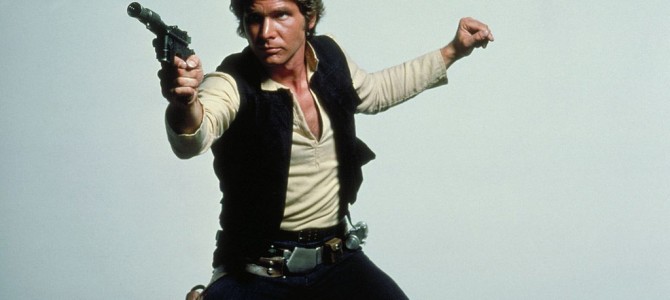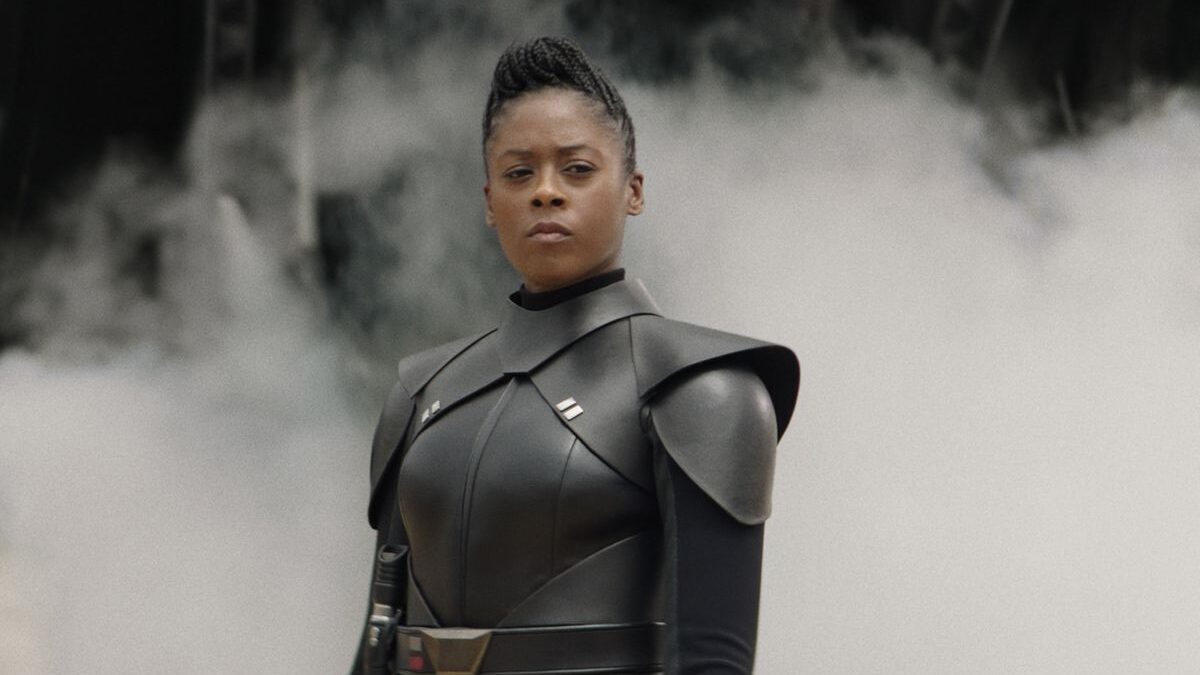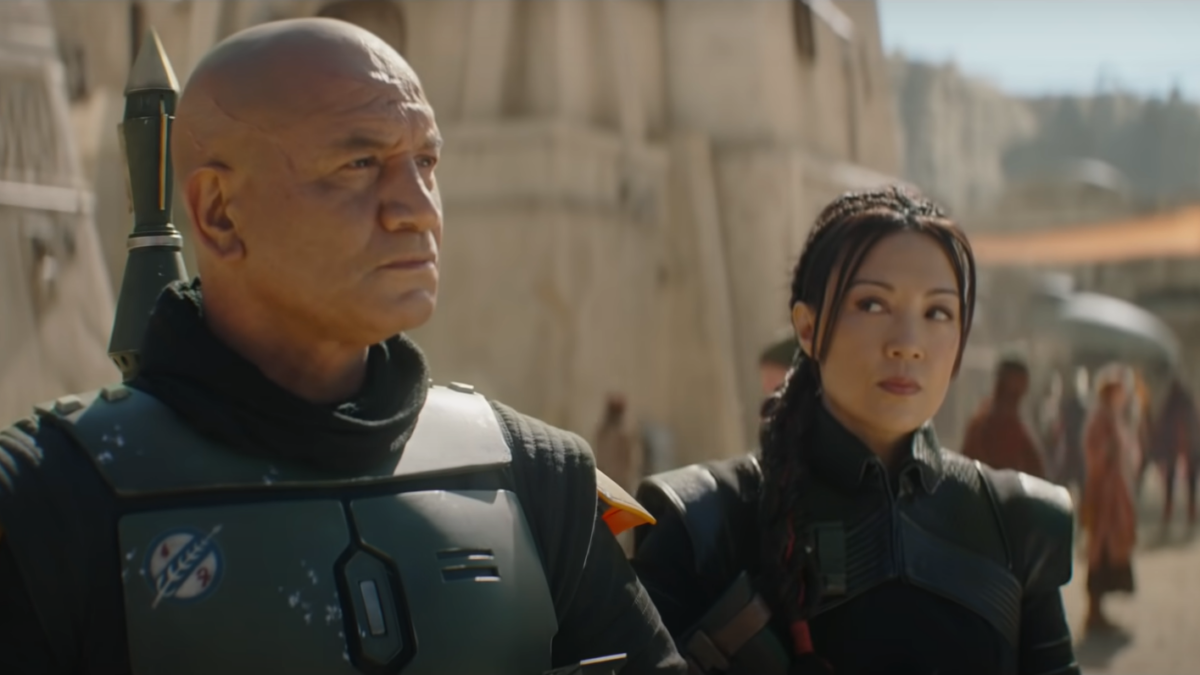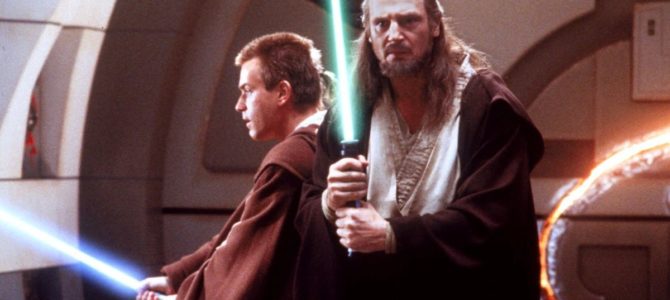
A long time ago, in a multiplex far, far away—actually, it was early June of 1977, at the Mall Garden Twin in Albertville, Alabama. I was eight, fresh out of the second grade, and the movie, of course, was Star Wars.
That movie was all I’d ever wanted, even before I knew what I wanted out of a movie. It was flash and bang and glorious vistas and scary monsters and fantastic spaceships and grand heroes and diabolical villains and magic and laser swords and a princess and a knight and talking robots, all wrapped up in stirring music and a vast, epic scale. Star Wars hit me, with all its extraordinary, playful velocity, at just the right age. I—and most of my contemporaries—have never been the same. In retrospect, we never had a chance.
On the eve of the first new Star Wars movie in ten years, and the at-long-last continuation of the original story, why are so many of us so captivated by these films? What has the power to keep drawing millions back to those long ago, far away worlds? As was said about 1999’s “Episode I: The Phantom Menace,” “The Force Awakens” is the most eagerly-anticipated movie of all time. People have buying tickets to see it for weeks. Why? Nobody acted like this over, say, “The Godfather Part III,” or “Jurassic Park: The Lost World.” (Good thing, too, since both of those movies were awful.)
Hollywood has tried for nearly 40 years to duplicate the success of Star Wars by dumping millions into movies with stunning visuals and lousy plots: “The Black Hole,” “Tron,” “Flash Gordon,” “The Fifth Element,” “Batman And Robin”—he list of bad science fiction movies since Star Wars could go on for page after page. Even entertaining movies with great effects like “Independence Day” or the original “Jurassic Park” have come and gone, generating millions in box-office receipts during their summer releases, but barely leaving a mark on the larger culture.
Epochal Themes of Ancient Legends
Star Wars is different. There’s something about these movies that touches a very primal chord in people—and not by accident. The underlying story itself, of the hero’s journey, has antecedents in cultures as diverse as Japanese, Hindu, and American Indian legends, as well as the western classics. There’s literally something in these movies for every culture, because they were written with themes taken out of ancient legends from all over the world.
Star Wars unabashedly celebrates the values of friendship, family, self-sacrifice, loyalty, and love. It’s very difficult today to find many popular entertainments that even take such things seriously, much less hold them up as worthy ideals.
These movies are special, though, not just because of the grand themes or the mythic underpinning. They reach us by honestly appealing to emotions rarely appreciated in this pessimistic age. These are stories that, for all their extra-worldly trappings, celebrate the most basic elements of humanity.
When I look back over the first three films, two individual scenes have always stood out for me. In terms of purely emotional impact, I don’t think you can top farm boy Luke Skywalker watching the sunset in “Star Wars,” or Yoda lifting a spaceship out of a swamp in “The Empire Strikes Back.” Both are short scenes, with no dialogue or sophisticated special effects to speak of. Their power comes from the simply but perfectly shot visuals, the soaring John Williams score, and the primal emotions of wonder they evoke.
Plus a Big Dose of Magic
Last, but maybe best of all, these are great entertainments. I still remember my dad walking out of the first film—after nearly a decade of grim 70’s cinema—and exclaiming, “It’s been forever since I went to a movie that was fun!”
It’s difficult to express how much I’m looking forward to seeing the new movie. The very best moment of “The Phantom Menace” was in November 1998, when a bootleg version of the first trailer escaped to a world on dial-up Internet. It was perfect. Sheer magic, for two minutes. Sadly, it was also the finest single moment of the prequel trilogy.
I don’t know whether “The Force Awakens” can be everything I want it to be. As in 1999, I don’t know if it’s humanly possible for any movie to live up to the expectations for a new Star Wars movie.
But I do know that there’s an eight-year-old somewhere inside who’s going to have a hard time sleeping Thursday night.









